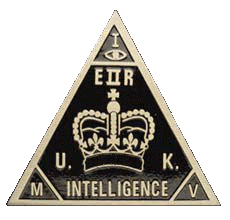 Israelis can tell the whole story of Sudan’s division – they wrote the script and trained the actors
Israelis can tell the whole story of Sudan’s division – they wrote the script and trained the actors
By Fahmi Howeidi
Now that we have been unable to defend the unity of Sudan, it might benefit us to understand what has happened there. Perhaps that will alert us to the fact that secession of the south is not the end, but is one of a series of splits intended to dismantle the Arab world surrounding Egypt.
From very early on, Zionists realized that minorities in the Arab world represent a natural ally to their state of Israel and so they planned to build bridges with them. Zionist representatives communicated with the Kurds in Iraq, the people in southern Sudan, the Maronites in Lebanon, Kurds in Syria, and the Copts in Egypt; Zionism adopted the principle of divide and conquer, and saw that the most effective way to fragment the Arab world was to create secessionist movements within it. In doing so, it sought the redistribution of power in the region in such a manner to make a group of marginal countries lacking unity and sovereignty, all the easier for Israel, in cooperation with non-Arab countries to control them one after the other later. All the rebel movements triggered by ethnic and sectarian groups in the Arab world have drawn support and advocacy from Israel, which has adopted these separatist movements, as witnessed by the Kurds in Iraq and the rebel movement in southern Sudan.
This situation helps us to understand Israel’s strategy towards the Arab world, which is designed to encourage minorities to express themselves so that they may eventually seize self-determination and independence from the state. What helps in all of this is that the Arab world, contrary to what the Arabs claim, does not consist of one cultural and civilized unity – the mythical “Arab nation” but it is a diverse mix of cultures, religions, ethnicities and multilingualism. Israel has been used to portraying the region as a mosaic that includes in its midst a complex network of multi-linguistic, religious, nationalism forms between Arabs, Persians, Turks, Armenians, Israelis themselves, Kurds, Baha’is, Druze, Jews, Protestants, Alawites, Sabians, Shiites, Sunnis, Maronites, Circassians, Turkomans, Assyrians and so on.
According to Israel’s view, when a land or part of a land has minority groups within it but no collective history, the real history is the history of each minority. This has the purpose of achieving two main objectives:
First, it rejects the concept of Arab nationalism and the call for Arab unity; Arab nationalism in the Israeli perception is an idea shrouded in mystery, if not irrelevant. Arab unity is a myth because the Arabs pay lip service to one nation, but live within mutually incompatible states. It is true that most are united by language and religion, but that is also the case with people across the English- or Spanish-speaking worlds, but that does not make them one nation.
Second, this is used to justify the legitimacy of Israel’s presence in the region as just one more to add to the mix of nationalities, peoples and languages, for which the perception of unity is an illusion. The logical conclusion of this train of thought is that each group of people (whether calling themselves a nation or not) has its own state; thus does Israel gains its legitimacy as one of many nation-states in the Middle East.
The preceding thesis is taken from a text book: “Israel and the South Sudan Liberation Movement”, published in 2003 by the Dayan Centre for Research on the Middle East and Africa. The author is retired head of Mossad Moshe Faraji. I have referred to him on more than one occasion. He is worth looking at again as the crop sown by Israel and its allies since the 1950s is beginning to bear fruit.
Another senior Israeli, former Minister of Internal Security Avi Dichter, referred to Sudan in his 2008 lecture delivered to the Institute for Zionist National Security Studies. “There have been Israeli estimates since Sudan’s independence in the mid-fifties that this country, although far from us, should not be allowed to become a force added to the power of the Arab world because if its resources continue under stable conditions, it will make it a power to be reckoned with.” Hence, Israel’s attention has been directed towards Sudan, hoping to exploit the situation.
Sudan provides strategic depth to Egypt. This was evident post-1967 when Sudan and Libya provided training facilities for the Egyptian air force and army; Sudanese forces were sent to the Suez Canal zone during the war of attrition waged by Egypt between 1968 and 1970. For these two reasons, Dichter added, Israel had to work on weakening Sudan and prevent it from becoming a strong, unified state. This strategic perspective is necessary, he said, for Israeli’s national security. It is worth noting that Dichter’s lecture took place almost thirty years after the peace agreement signed between Egypt and Israel in 1979.
When asked about the future of southern Sudan, Dichter replied: “There are international forces led by the United States that are determined to intervene in Sudan so that the South will become independent, and the same for the Darfur region, like the independence of Kosovo. The situation in southern Sudan is not unlike that in Darfur and Kosovo, in that the two regions aspire to independence and acquire the right to self-determination after their citizens fought for that.”
Israeli support for the rebels in southern Sudan has gone through five stages notes Colonel Faraji:
Phase 1 started in the fifties. For nearly a decade, Israel focused on providing humanitarian aid (medicines, food and doctors) and was keen to provide services to refugees who were fleeing to Ethiopia. The first attempts to invest in the tribal differences in southern Sudan itself began in order to intensify the conflict and encourage the South to secede from the Arab north. Israeli intelligence officers stationed in Uganda opened channels of communication with the leaders of the southern tribes to study the demographic map of the area.
Phase 2 began in the sixties with Israel providing military training in special centres established in Ethiopia. At this stage, the Israeli government became convinced that keeping Khartoum busy with internal wars was sufficient to make sure that it would be unable to provide any support for Egypt’s struggle with the Zionist state.
Proselytizing organizations active in the south encouraged Israel to send members of its intelligence services under the cover of humanitarian aid; the prime goal was to train influential people to sustain the tension in the region. At this stage, Israel also expanded its support to the rebels by providing weapons through Ugandan territory; the first of such deals was in 1962, with mainly Russian armaments which had been captured by Israel when it took part in the aggressive Suez campaign in 1956. Fighters were trained in southern Uganda, Ethiopia and Kenya before being pushed over the border to fight inside Sudan.
Phase 3 extended from the mid-sixties into the seventies, when the flow of arms to Southern Sudan was facilitated by an Israeli arms dealer called Gabi Shafine, who was working for Israeli intelligence. Shipments of Russian weapons won by Israel in 1967 were dropped by Israeli cargo planes. Israel also established a school for infantry officers to train the cadres necessary to lead the rebel factions. Israeli elements were involved in the fighting to lend their expertise to the South. At this stage groups were taken to Israel to receive military training. At the beginning of the seventies another channel for the delivery of Israeli support to South Sudan through Uganda was opened officially.
When it seemed that the rebel movement was about to collapse in 1969, Israel made a tremendous effort to urge the rebels to continue their fight, and used every method available to them to persuade southerners that they were engaged in a national struggle between Arab-Muslims in the north who were dominating a Black-African-Christian-Animist south.
Phase 4 from the late seventies through the eighties saw the African continent witness several major diversions (e.g. drought in Ethiopia) which did not stop Israel from supporting the rebels; indeed, support increased after Ethiopia became a regular conduit for the delivery of weapons to the South. John Garang emerged at this stage as a leader supported by Israel; he was received in Tel Aviv and given money and weapons. Israel was keen to train his men in various martial arts; ten pilots were trained to use light fighter aircraft.
Phase 5 started in late 1990 with expanding Israeli support; shipments reached the south through Kenya and Ethiopia. Israel provided the south with heavy anti-tank weapons and anti-aircraft guns. At the beginning of 1993, the coordination between Israel and the SPLA (the southern army) included funding, training, armament, information and supervision by Israeli technicians of military operations.
It is clear that Israel has been eyeing southern Sudan for more than half a century.
A worthy observation is that the insurgency in the south began in 1955, one year before the Declaration of Independence of the state of Sudan. This illustrates that the oft-cited reason for southern secession – the implementation of Shari’a Law by the government of Al-Turabi in 1989 – is merely an excuse; this is a struggle that has gone on long before such proposals were even mooted.
While Israel was supporting the southern rebels with arms, Western countries were continuing their diplomatic efforts to arrange the division of Sudan through a referendum. The peace accord signed between the Khartoum government and the rebels was reached with British, American and Norwegian sponsorship. For more than fifty years, the people of Sudan have faced armed insurrection on one side and diplomatic pressure and dirty tricks on the other. If just a quarter of such an effort had been applied on the situation in Palestine, the problem would have been resolved decades ago. Self-determination appears to be acceptable, indeed highly desirable, if it will weaken a predominantly Arab state, but off the agenda when it involves the Palestinians obtaining their rights against the Zionist state of Israel.
They have planned for this division of Sudan and look set to get what they wanted. As for the Arabs, they have stood and watched as mere spectators. I hope that this is not a precursor for further disappointments to come.
Source: Al-Khaleej Times
www.shoah.org.uk, 16 January 2011
 Paddy McGuffin, Home Affairs Reporter
Paddy McGuffin, Home Affairs Reporter




